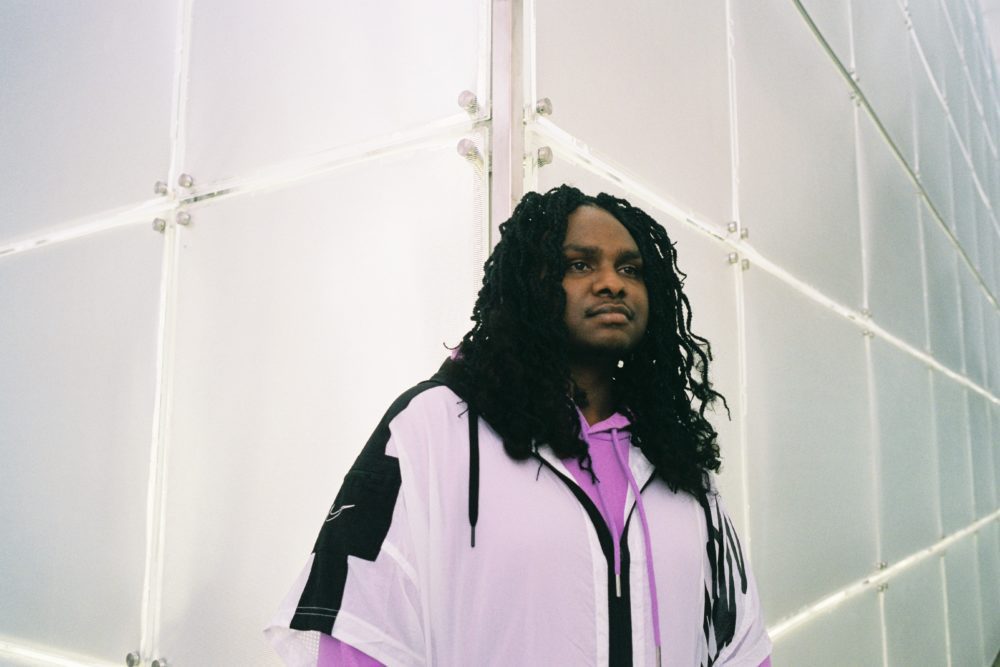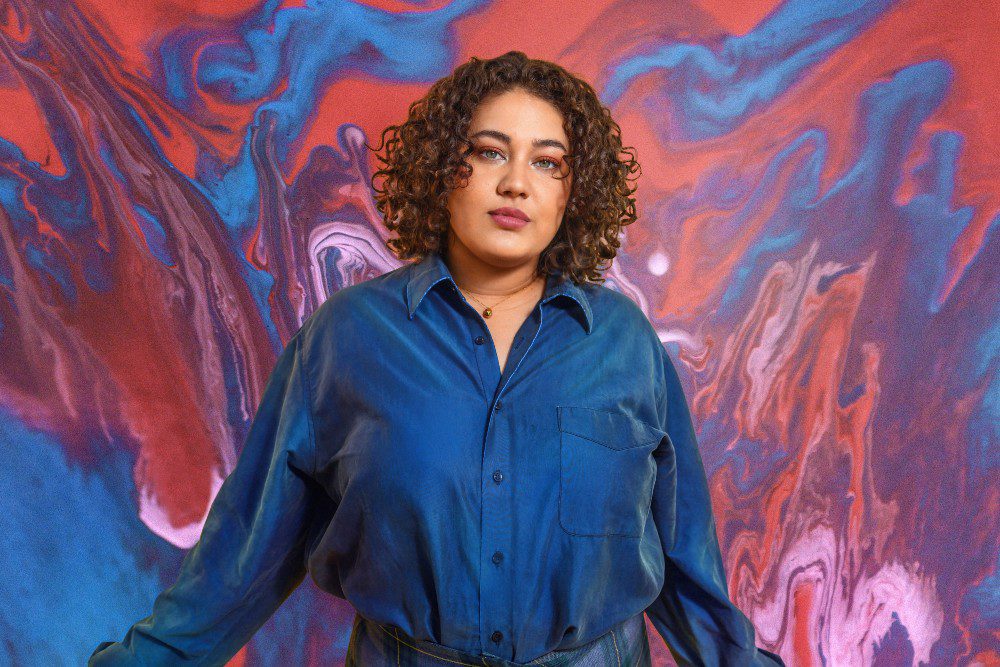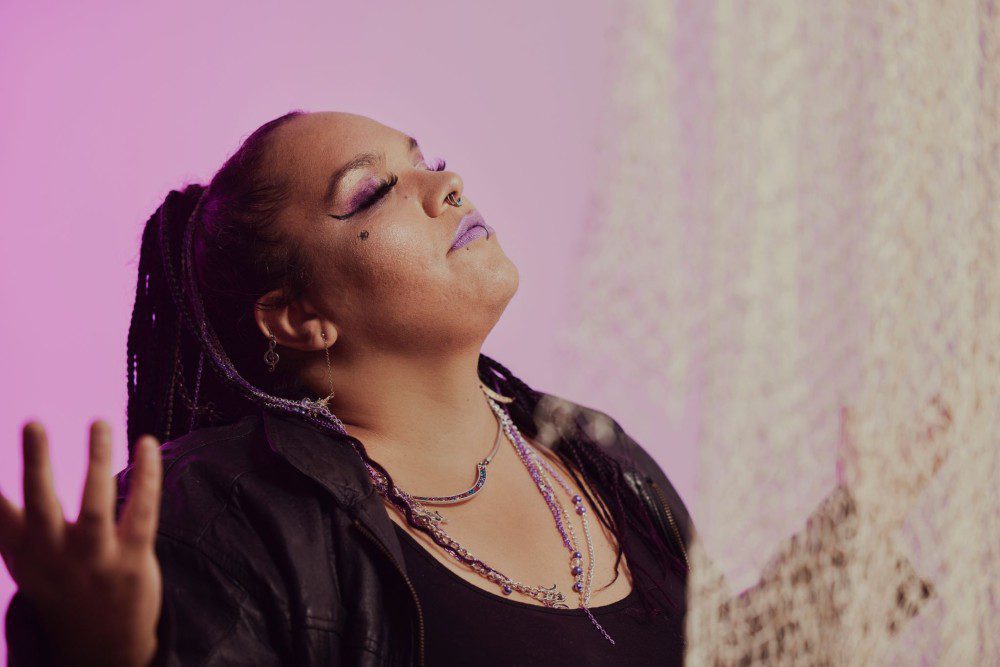Baker Boy Wins Big at the National Indigenous Music Awards; Plus Top Honors to Archie Roach & More


Last month, the National Indigenous Music Awards honored dozens of Australian musicians despite pandemic restrictions, as the ceremony was broadcast from Darwin in the Northern Territory to participants and audiences around the entire country. Top honors of the night went to Former Young Australian of the Year, rapper Baker Boy, who won three of the 10 awards. For the second year in a row, he was awarded Artist of The Year.
The Yolngu rapper from the Northern Territory won the award against a competitive field of fellow Indigenous artists, each of whom has released critically acclaimed albums and singles in the past year: pop singers Jess Mauboy and Thelma Plum, roots artist Emily Wurramara who sings original music both in English and Anindilyakwa, hip hop artist and rapper Mau Power, and electro-soul duo Electric Fields (Zaachariaha Fielding and Michael Ross).
Baker Boy, born Danzal Baker, won Song of the Year and Film Clip of the Year for his track featuring Jess B, “Meditjin,” which translates as “medicine” in Yolgnu Matha. The song reached number one on the Australian Indigenous Music chart. In a statement made when the song was released in November 2019, Baker Boy said, “Music is the best meditjin. It brings everyone together, makes you want to dance, love, laugh, vibe and feel. I wrote ‘Meditjin’ with just that in mind. It’s about making people feel the music and express themselves.”
Album of the Year was won by Victorian Archie Roach, whose album Tell Me Why dovetailed with the release of his memoir as an activist who has campaigned for the rights of Indigenous Australians throughout his 64 years of life and career. The album revisits song spanning Roach’s career, including “Took the Children Away” (from his 1990 debut Charcoal Lane), which laments the Stolen Generations – Indigenous Australian children forcibly removed from their families and placed with white Australian families.
Roach was one such child; at the age of four, he and his sisters were taken from his parents by Australian government agencies and bounced from orphanages to unsuccessful foster care placements before finding some semblance of peace in the home of Scottish immigrants Alex and Dulcie Cox in Melbourne. Alex taught Roach how to play guitar and keyboards, also encouraging him to join in on singing traditional ballads. Though haunted by his traumatic childhood, Roach became internationally renowned, playing shows with Bob Dylan, Billy Bragg, Suzanne Vega, Tracy Chapman and Patti Smith.
Roach met his future wife, Ruby Hunter, at a Salvation Army drop-in centre when she was 16 and he was 15. Hunter, a Ngarrindjeri woman, had also been removed from her family and fostered by white parents at a young age. She often performed with Roach and the two ran workshops and events for Indigenous youth around Australia before her premature death, aged 54, in 2010. Though later than ideal, she was inducted into the NIMA Hall of Fame this year.
Writing songs in secret while raising a family and working at a hostel for homeless Aboriginal girls and women, Hunter emerged as a songwriting talent alongside her husband when he discovered a song she’d written, “Down City Streets,” and recorded it on Charcoal Lane. She was offered a recording contract on the basis of “Down City Streets,” the first Australian Aboriginal woman to sign with a major record label. Ruby was central to the formation of Black Arm Band, a company of leading Indigenous and non-Indigenous performers from around Australia. Black Arm Band tours and presents Indigenous performances at major festivals in capital cities and in remote Australian communities.
The National Indigenous Music Awards (NIMA), which importantly celebrate new and emerging artists as well as recognising and honoring established artists, were established in 2004 as an association between MusicNT and the Northern Territory Government. The other contenders for Album of the Year were a testament to the incredible diversity of Indigenous music being made throughout Australia.
Miiesha hails from a small Aboriginal community in Central Queensland (north of Australia) called Woorabinda. She debuted in 2019, supporting Baker Boy, Briggs and Thelma Plum as well as performing at Melbourne’s Laneway Festival, she’s proven popular as both a live artist and on community radio stations.
Miiesha’s debut Nyaaringu is the natural result of her passion for soul, gospel, R&B and hip hop. Though only 29 minutes, the collection of songs prove her skills as a soul singer and an extraordinary vocalist and songwriter at only 20 years old. “Nyaaringu” translates as “what happened” in the Pitjantjatjara language. Miiesha attributes the title to the inherited stories, grief and hope that have been passed down through her grandmother via stories and shared musical experiences.
Ray Dimakarri Dixon’s album Standing Strong Mudburra Man combines English and Mudburra languages. Dixon lives in the Northern Territory, a community 700km from the major city of Darwin. The area is threatened by fracking, which devastates the land and ruins wildlife habitats. Dixon’s album is ultimately a protest for his country, and a strong case against mining and fracking.
“You can support people like myself – people who are standing strong. There’s also an outfit called Lock the Gate that comes out to country and helps us,” he told Melbourne university, RMIT.
The awards are a nationally recognised celebration of Aboriginal and Torres Strait Islander artists. NIMA’s creative director, Ben Graetz, sees a silver lining to hosting the event virtually this year. “The great thing about virtual events is it allows people access to it, people with disabilities that probably aren’t able to get to the event, people living in remote communities that aren’t able to get to this event,” he says. “It’s a way of bringing our community together, our mob together, but also… celebrating all of our great musicians.”
Check out a full list of NIMA’s finalists for 2020 below.
The full list of Finalists for 2020 is below.
Artist of the Year
Baker Boy
Electric Fields
Emily Wurramara
Jessica Mauboy
Mau Power
Thelma Plum
Album of the Year
Archie Roach – Tell Me Why
Jessica Mauboy – Hilda
Mau Power – Blue Lotus The Awakening
Miiesha – Nyaaringu
Ray Dimakarri Dixon – Standing Strong Mudburra Man
Song of the Year
Alice Skye – “I Feel Better But I Don’t Feel Good“
Baker Boy ft. Jess B – “Meditjin”
Briggs ft. Tim Minchin – “House Fyre“
Electric Fields & Keiino – “Would I Lie“
Kee’ahn – “Better Things“
Thelma Plum – “Homecoming Queen“
New Talent of the Year
Allara
Dallas Woods
Kee’ahn
Miiesha
Mitch Tambo
Film Clip of the Year
Baker Boy ft. Jess B – “Meditjin”
Briggs ft. Tim Minchin – “House Fyre”
Dallas Woods – “If It Glitters It’s Gold“
Miiesha – “Drowning“
Tasman Keith – “Billy Bad Again“
Community Music Clip
Booningbah Goories
Bwgcolman Mob
Githabul Next Generation
Iron Range Danger Gang
KDA Crew
Ntaria Connect
Indigenous Language Award
Rrawun Maymuru & Nick Wales – Nyapililngu (Spirit Lady)
Stuart Nugget – Nayurni (Woman)




